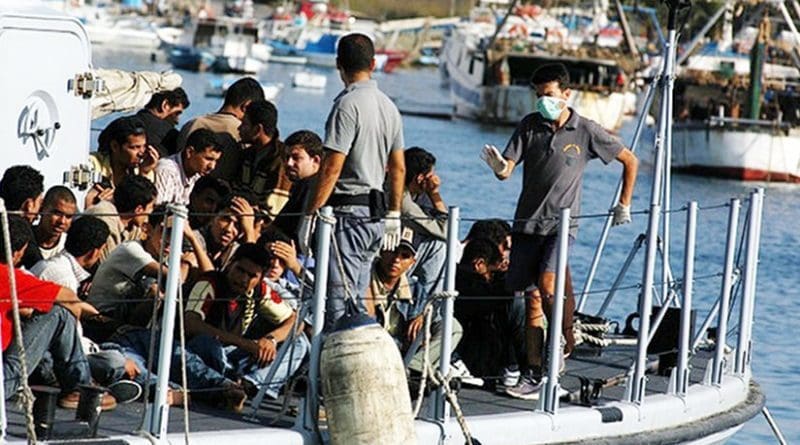2016 Deadly Year For Migrants, Despite Lower Numbers Arriving On Europe’s Shores
EU border force Frontex, estimates that the number of people landing on Europe’s shores fell by two-thirds in 2016. A drop in arrivals on Greece’s islands contrasts however with record numbers of migrants reaching Italy. With over 5,000 people killed or missing, the UN reports that 2016 was the deadliest year ever for migrants crossing the Mediterranean. In meetings with Commission, Council and UNHCR representatives on 12 January, civil liberties committee MEPs shared their views on the crisis.
Addressing the civil liberties committee, Maltese minister Carmelo Abela pledged to tackle divergences among national governments on the issue of migration: “The basis of dialogue should be responsibility and solidarity. Directly or indirectly, all member states are affected by migration.” “While we need to give refuge to those in need, we must be quick in returning those who do not qualify for protection,” he added.
Turkey deal
Mr Abela also urged that the EU-Turkey refugee deal be respected. In a meeting with Commission representatives, also on 12 January, Ana Gomes (S&D, Portugal) described the EU-Turkey deal as “illegal and immoral”.
Responding to suggestions that a migrant deal with Libya be modelled on the Turkey agreement, UNHCR representative Vincent Cochetel said: “This cannot be a blueprint for Libya.” His sentiment was echoed by Dutch Green member Judith Sargentini.
Dutch EPP member Jeroen Lenaers noted that the EU-Turkey deal had resulted in a reduction in deaths trying to reach Greece but that “If we want to get it to work we need to make sure the conditions for hosting refugees are much better”.
Parliament’s Turkey rapporteur Kati Piri (S&D, Netherlands) criticised a Commission announcement before Christmas that the transfer of asylum seekers to Greece under the Dublin Regulation should resume: “Let’s get realistic. We see what’s happening in Greece. We haven’t been sending people back there for years because of the lack of qualifying reception facilities. You are feeding populism by announcing something that we all know will not happen.” The Dublin regulation governs which EU member state is responsible for processing asylum claims.
10,000 missing minors
Cecilia Wikström (ALDE, Sweden) is preparing the civil liberties committee report on the Dublin reform. She noted that one of the holes in the new proposals is how to ensure that unaccompanied minors are protected: “Last year at least 10,000 children and teenagers went under the radar and disappeared.” UNHCR representative Mr Cochetel recommended that member states establish systems for the fast adoption of guardians and the restoration of family tracing.
Responding to Mr Cochetel’s call for legal avenues to Europe for refugees, Italian GUE/NGL member Barbara Spinelli said: “If we do not come up with legal pathways, we are running the risk of creating a huge underclass in Europe.”
Indeed, noting that Parliament is encountering much resistance from member states on humanitarian visas, the Parliament’s lead MEP on the EU visa code Juan Fernando López Aguilar (S&D, Spain) urged the UNHCR to be more outspoken on the issue: “This could really help to shake up the atmosphere.”
S&D member Josef Weidenholzer (Austria) criticised the ineffectiveness and fragmentation of EU registration systems, while Italian S&D member Cécile Kyenge added to UNHCR calls for a simplified bureaucracy for dealing with asylum applications.
Noting that it would bring considerable savings and improve security screening for those entering the EU, UNHCR representative Cochetel also called for a common EU registration system for asylum seekers that would go well beyond the current Eurodac database. He also urged the EU to prepare itself for possible future influxes: “Europe seems to have neither a plan A nor a plan B. The scenes of 2015 must not be repeated.”

